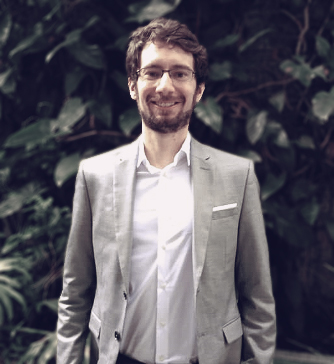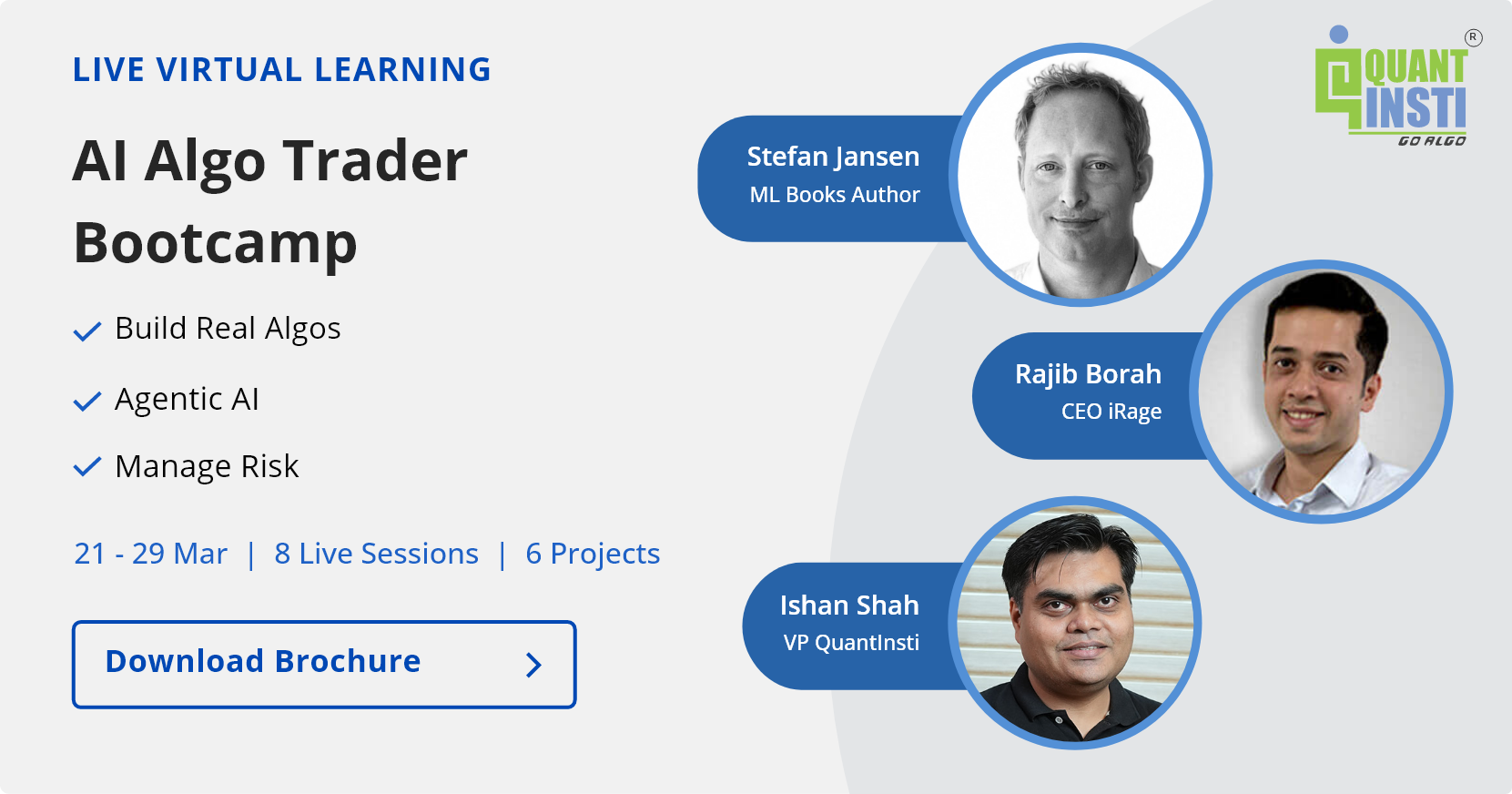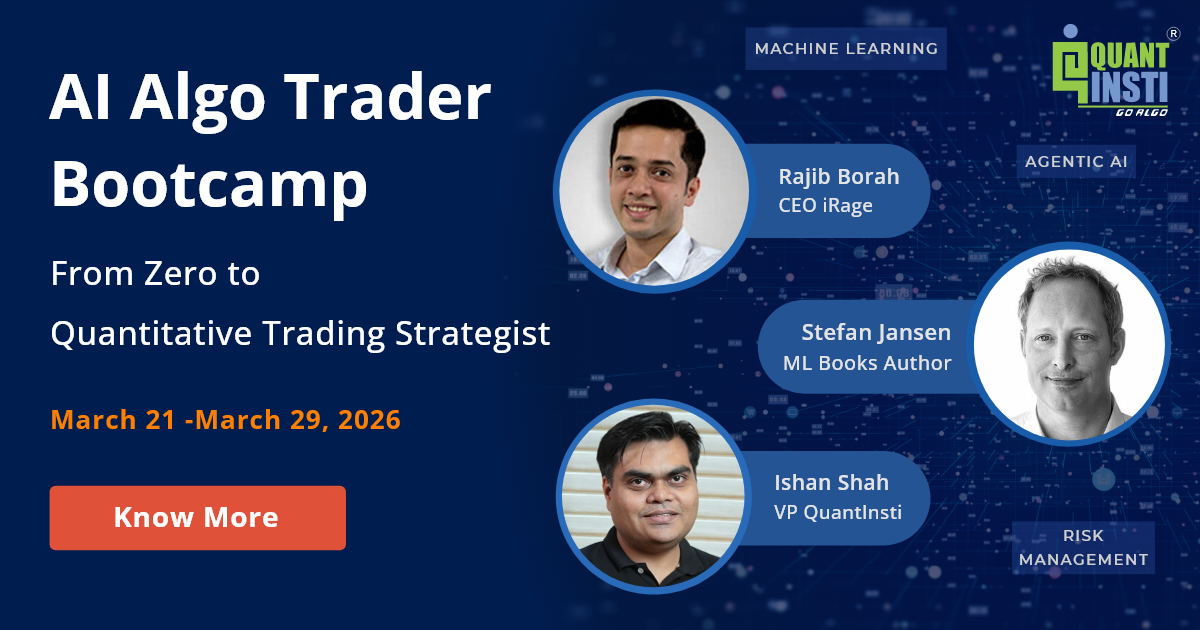
Trading has always been a lucrative domain and people are continuously drawn to it. Though it hasn’t always been this way, times have changed, and so has the way in which trading occurs.
Nobody is born with the instinct to be a part of any profession, it is their interest, their drive and their aspiration that drives them to pick up a job of their liking. In order to achieve this, countless people across the globe educate and learn by themselves. Algorithmic trading aspirants haven’t fallen behind. With a programme like Quantra guiding them, they’re on the fast track to this domain.
What‘s surprising is that there are people like Nikolas out there who make it all seem simply unbelievable! His is a story of relentless persistence, hunger to learn more, and the desire to achieve. Doesn’t this seem like straight out of a movie script? Well, it’s true!
Join us on his journey as Nikolas shares his story with us.
Our Conversation With Nikolas Pareschi

Hi Nikolas, tell us something about yourself!
Hi! I’m Nikolas Pareschi and I hail from Brazil. I’ve graduated in Applied Mathematics and hold a Master’s degree in Financial Engineering. Besides trading independently, I’m also an Instructor at Investidor de Sucesso, a Brazilian education site.
What led you to become a trader?
I was always interested in games of chance, having played poker on a professional level during college and some years afterwards. The world of finance came naturally as a way to multiply the capital earned from poker and other sources. I started trading in 2007, not a great year for a starter, at least thinking purely from a financial perspective. Nevertheless, the early years were tough. That didn't make me quit, I read every book that I could find (more than 200) and kept improving.
Can you shed some light on your journey in Trading?
In 2011, I started in algorithmic trading and that moment was an epiphany. The reality is that most indicators and methods do not survive statistical robustness tests. And even those that pass a cross-validation or a walk forward, they can suddenly stop working! My path became gradually more and more quantitative.
I do not think I am a creative person, I have not found many alphas or even betas in my life by myself, but I can recognize where the gems are. I started reading finance papers on SSRN, that was a second epiphany moment. Finance papers are a great source for trading ideas, the majority of the papers are well written and the backtests are usually done in a form so that they can have statistical significance.
By the way, I started reading academic papers thanks to a suggestion by Dr. Ernest P. Chan in one of his books.
Winning the World Cup of Forex Championship - How did that happen?
After having great returns in 2015, 2016 I decided to enter in the 2017 Forex World Cup. That happened because of the insistence a friend, after a while I said, why not, with 2016 results I would be placed in second if I have entered. It would be great if that happened. To win a world trading championship one must trade consistently a set of alphas (ideally) and betas to achieve a high sharpe ratio and of course, needs some luck also. 2017 was a fantastic year, I timed the commitments of traders and the Trump/Mexico situation and had some plays in Eastern Europe currencies using PPP, return to the mean and momentum. Those were the great plays, I made some mistakes also but gladly the mistakes were minimized.
With an exhaustive experience of algorithms, backtesting and much more, what led you to join Quantra?
I respect a lot the work of Dr. Ernest P. Chan and when I knew about Quantra I signed immediately to some of the courses. What I most like about Quantra is the perfect match between trading experience and academic proficiency.
Some ideas that I have incorporated in my trading came from my learnings from the algo trading courses.
Any tips or suggestions for traders out there?
I would suggest to starters to trade EVERY market and in a holistic manner. Everything is connected, some forex imbalances come from the equities world, other times the imbalances come from commodities, other times from bunds. Also, if you trade every market you can start being more selective in your plays, you will not have problems also regarding diversification. Sometimes the better plays are in Reits, other times in options.
For example, after 2014 and 2015 dollar strength and brent/crude crash, I have found in 2016 early months an oil Brazilian company with more cash than its market value, considering also the debt (PRIO3). Is has valued more than 700% since then (unfortunately I sold before 700% but took some nice profits).
We never know where the opportunities will be. But thinking in a holistic manner we will have clues in where to look. Emerging markets at the time had suffered crazily due to dollar strength and oil companies even more. Why not search for oil companies in emerging markets?
Go bayesian and always stick with the scientific method.
Learning Solutions at QuantInsti
There is something special about learning a trading strategy by starting with one line of code and building upon it step by step! If you are looking for short self-study courses in Quantitative & Algorithmic trading, we recommend you Quantra®. It provides practical hands-on training to create your own trading strategies. For those, looking for Algorithmic Trading certification and start their own business in Algorithmic Trading, know more about EPAT™.
Disclaimer: In order to assist individuals who are considering pursuing a career in algorithmic and quantitative trading, this case study has been collated based on the personal experiences of a student or alumni from QuantInsti’s EPAT™ programme. Case studies are for illustrative purposes only and are not meant to be used for investment purposes. The results achieved post completion of the EPAT™ programme may not be uniform for all individuals.


